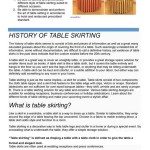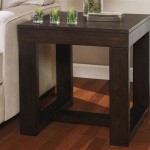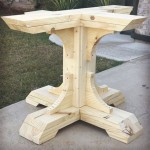Growing Vegetables in Pots: A Guide to Container Gardening
Container gardening, or growing vegetables in pots, presents a multitude of advantages for gardeners with limited space, challenging soil conditions, or a desire for greater control over their crops. This method offers flexibility, allowing individuals to cultivate a wide range of vegetables in various locations, from balconies and patios to rooftops and even indoors. Whether you are an experienced gardener or a novice, growing vegetables in pots can be a rewarding endeavor, offering fresh, homegrown produce with minimal effort.
Choosing the Right Pots and Soil
Selecting the appropriate pots and soil is crucial for successful container gardening. The size of the pot should accommodate the chosen vegetables, providing ample space for root growth and development. For most vegetables, pots with a minimum diameter of 12 inches are recommended. However, larger varieties like tomatoes and squash may require pots up to 20 inches wide. Choosing a pot with drainage holes is essential to prevent waterlogging and root rot.
The type of material for the pot can also influence growth. Terracotta pots are porous and allow for good drainage, but they can dry out quickly. Plastic pots retain moisture better but can heat up in direct sunlight. Selecting a material that suits your climate and watering habits is important.
High-quality potting mix designed specifically for vegetables is vital for optimal growth. These mixes are formulated to provide the proper balance of nutrients, drainage, and aeration. Look for mixes containing peat moss, vermiculite, and compost. It’s advantageous to add organic matter, such as composted manure or worm castings, to the potting mix to improve nutrient content and soil structure.
Selecting the Right Vegetables for Pots
Not all vegetables fare equally well in containers. Some are better suited for this method than others. For example, root vegetables such as carrots and beets require a larger volume of soil and may struggle in pots. However, many vegetables thrive in containers, offering a diverse range of options for the home gardener.
Here are some vegetables that are particularly well-suited for pot cultivation:
- Tomatoes
- Peppers
- Cucumbers
- Zucchini
- Lettuce
- Spinach
- Radishes
- Strawberries
- Herbs
When selecting vegetables for pots, consider the mature size and root system of each variety. Smaller varieties, like bush beans or dwarf tomatoes, are generally better suited for containers than their larger counterparts.
Planting and Caring for Container Vegetables
Once you have chosen your vegetables and pots, it is time to plant. Start by filling the pot with potting mix, leaving a few inches of space at the top. Dig a hole in the center of the pot, large enough to accommodate the root ball of the seedling or plant. Carefully remove the seedling from its container, gently loosen the roots, and place it in the hole. Fill the hole with potting mix, firming the soil around the roots.
Water the plants thoroughly, ensuring the soil is moist but not soggy. Place the pots in a sunny location that receives at least six hours of direct sunlight per day. Depending on the chosen vegetables, you may need to provide additional support structures, such as stakes or cages, to help them grow upright.
Regular watering and fertilization are essential for healthy growth. Check the soil moisture daily and water deeply when the top inch of soil feels dry. Fertilize the plants every two to four weeks using a balanced liquid fertilizer or organic fertilizer granules.
Continuous monitoring for pests and diseases is vital. Regularly inspect the plants for signs of infestation or disease and take appropriate measures to address any issues promptly. Regularly removing weeds and dead leaves can also contribute to the overall health of your container garden.

The Best 11 Vegetables To Grow In Pots And Containers Gardener S Path

25 Most Ive Vegetables For Containers Best Pots

How To Grow Vegetables In Pots Bbc Gardeners World
Vegetables In Containers Rhs Gardening

Vegetable Gardening A Beginner S Guide Nc State Extension Publications

20 Best Vegetables For Container Gardening A Piece Of Rainbow

How To Grow Organic Vegetables In Pots About The Garden

Container Gardening Ten Easy Vegetables To Grow In Pots And How Do It Growing Family

Growing Vegetables In Pots Containers Saga

Maine Gardener No Land Grow Vegetables In Pots








